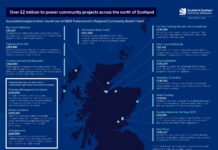
NEW research for NFRC (National Federation of Roofing Contractors) has revealed the ‘critical’ role rooftops will play in how we adapt to climate change.
The research, carried out by the University of Southampton, revealed that failure to change the way we use our roofs could have severe consequences.
The study highlighted the potential of various roofing technologies to cool the temperature of a building as well as the surrounding environment; store and slow the rate of rainwater runoff before it reaches the ground; and generate renewable energy through solar panels.
NFRC wants the government to fast-track proposed changes to building regulations relating to net zero homes; provide financial incentives to retrofit buildings; and put pressure on local authorities to incorporate roofing technologies that help to build climate resilience into their planning policies.
NFRC is also calling on the roofing industry to invest in green skills and diversify businesses to incorporate new technologies.
Patrick James, professor of energy and buildings at the University of Southampton, said, “Over the next century we expect the UK to have warmer and wetter winters and hotter and drier summers, with more extreme weather events such as torrential rain and heatwaves. Through modelling built forms across 15 cities in the UK, over three different time periods, we are able to highlight characteristics that increase risk to help decision makers build resilience.
“We must all do our bit to build resilience for these changes to our climate, but what this research shows is that roofing has a key role to play in this.
“We found that in all locations, a well-designed roof with good ventilation and a medium/light coating can significantly reduce the risk of overheating.
“Evidence from the research community has highlighted the benefits of roofing technologies such as green and blue roofs, notably to reduce flooding risks, as well as providing many other benefits including enhancing biodiversity, reducing the urban heat island effect, and cutting down pollution levels.”
NFRC chief executive James Talman added, “Whilst the evidence is clear, many barriers remain. The roofing industry is already experiencing a skills shortage and an ageing demographic, so unless we invest in green skills now, we won’t have the people we need to be able to deliver this critical work.
“Furthermore, there are also significant policy barriers—outside of London, the UK is far behind many other countries when it comes to encouraging green, blue and cool roofs, and this needs to change.”








